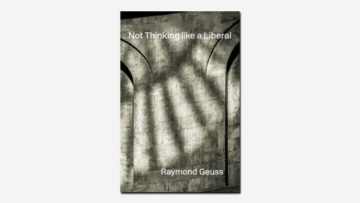 Blake Smith in American Affairs:
Blake Smith in American Affairs:
Raymond Geuss, Cambridge philosopher, is a prominent critic of liberalism and neoliberalism, and of the tradition of anglophone analytic political philosophy that he sees as their ideological prop. His scholarship, since the 1970s, can be read as an attempt to model another form of thinking, an approach inspired by classical antiquity, Nietzsche, and the Frankfurt school. Against what he sees as the pallid abstractions of Anglo-American political philosophy, Geuss presents himself as a champion of a more skeptical, historically informed way of thinking about politics. In his new book, Not Thinking Like a Liberal, Geuss gives an account of the autobiographical origins of this mode of thought and, more ambitiously, though also more vaguely, gestures toward an alternative to liberalism.1
Not Thinking Like a Liberal traces Geuss’s education, first at an unusual Catholic boarding school in the 1950s, and then at Columbia University with figures such as Sidney Morgenbesser. As a memoir, the book is not particularly compelling. It contains little in the way of events, psychology, or gossip. Geuss underplays, for example, the conflict with Morgenbesser that eventually led to their break and, in a notable silence, avoids discussion of Robert Nozick, who was also Morgenbesser’s student (as an undergraduate) during that era. Nozick became one of the most prominent philosophers in the tradition Geuss despises and is a frequent target of his polemic in other writings.
Not Thinking is rather a paean to Geuss’s influences. This mode of exposition allows him to express his political and philosophical commitments without having to argue for them, presenting them instead as aspects of his character acquired through engagement with his teachers. Geuss sees it as his good fortune that these influences equipped him to avoid the almost irresistibly stultifying influence of liberalism on Americans’ minds. He was able to escape this stupefaction, he writes, thanks to the peculiar combination of Catholic and Marxist influences among the refugee clergymen who staffed his school.
More here.
